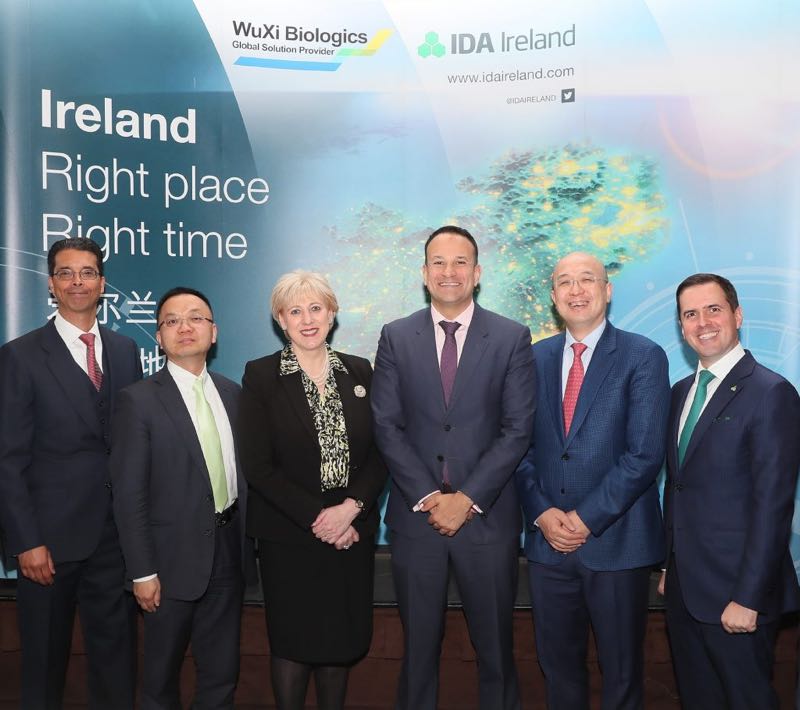Chinese drugmakers WuXi Biologics and Sinobioway Biomedicine Co. have announced plans to build manufacturing plants in the country. Both companies said these projects launch in support of China’s new Marketing Authorization Holder (MAH) scheme.
The Marketing Authorization Holder (MAH) is a pilot programme in China currently available in ten provinces and municipalities. The scheme allows pharma companies to contract production instead of building their own manufacturing sites. The regulation has been designed to expedite time to market for international companies. In the past, approval required that manufacturing be handled by the drugmaker.
A Hong Kong-listed company, WuXi announced last week that it would build an R&D and clinical and commercial production centre in Shijiazhuang. Located in the capital city of the Hebei province in northern China, the Shijiazhuang site will eventually employ 1,000 workers.
Projected as a state-of-the-art biologics centre, the US$240 million plant in Shijiazhuang features process development labs, clinical manufacturing facility (MFG9) with a 5,000-litre bioreactor capacity and commercial manufacturing facility (MFG8) with 48,000 litre bioreactor capacity.
The plant will be built to meet cGMP standards of the United States, the European Union, and China.
Besides serving global clients, the new integrated centre will support the MAH programme in China and address urgent needs of Chinese partners. Initial phase of the centre will be operational in 2020.
"We are very pleased to establish the largest biologics centre in northern China,” said Dr. Chris Chen, WuXi Biologics CEO. Chen said this expansion will allow the company great access to local talents, markets and government support.
“With this investment and current 161 biologics programmes that WuXi Biologics will manufacture, we will quickly and cost effectively expand our manufacturing capacity to meet our partners' needs and become one of the global CMO leaders,” he added.
Upon completion, the Shijiazhuang site would become the largest biologics centre in northern China.
WuXi operates seven manufacturing facilities in China, including a plant in Wuxi city featuring a 4,000-litre custom single-run disposable bioreactors from ABEC.
In line with the new MAH scheme, China's Sinobioway Biomedicine Co. has announced plans to invest US$471.6 million by 2023 on a biologics manufacturing facility that eventually will have 500,000 litre capacity.
The Sinobioway facility is projected on a 15,404 sq m site at company’s biomedical industry park in Anhui, in eastern China. As well as bioreactor capacity it will include labs, storage and quality control areas.
Announced in Sinobioway’s April filling, the turnkey construction project is expected to be completed in about 18 months.
Regulatory shift
Global pharma companies have already built their own biologics plants to produce drugs in China, but the new MAH scheme removed a huge financial burden from smaller companies. The pilot programme was announced in 2016.
The regulatory shift has drawn more international players to China. Last year, Germany’s Boehringer Ingelheim opened a biologics plant with one single-use bioreactor, but the plant was designed to install additional 2000-litre single-use bioreactors and fill/finish capabilities if demand calls for that.

WuXi Biologics to invest €325m to build biomanufacturing facility using single-use bioreactors in Ireland (PRNewsfoto/WuXi Biologics)
Demand is reportedly robust for WuXi as the company said it is already working on dozens of biologic drugs for clients.
In March, WuXi received FDA approval to produce a novel HIV med for Taiwan-based TaiMed Biologics at its original plant for cell-based drugs near Shanghai. The FDA approval might pave the way for WuXi to tap into international markets.
WuXi has indeed plans to expand in Europe. In April, the company said it will invest €325 million in the construction of a biologics facility in Dundalk, Ireland. The site, its first outside China, is scheduled for completion in 2021 and to employ 400 workers.
